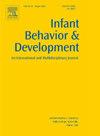The impact of caregiver inhibitory control on infant visual working memory
Abstract
Visual working memory (VWM) emerges in the first year of life and has far-reaching implications for academic and later life outcomes. Given that caregivers play a significant role in shaping cognitive function in children, it is important to understand how they might impact VWM development as early as infancy. The current study investigated whether caregivers’ efficiency of regulating inhibitory control was associated with VWM function in their infants. Eighty-eight caregivers were presented with a Go-NoGo task to assess inhibitory control. An efficiency score was calculated using their behavioural responses. Eighty-six 6-to-10-month-old infants were presented with a preferential looking task to assess VWM function. VWM load was manipulated across one (low load), two (medium load) and three (high load) items. Functional near-infrared spectroscopy was used to record brain activation from caregivers and their infants. We found no direct association between caregiver efficiency and infant VWM behaviour. However, we found an indirect association - caregiver efficiency was linked to infant VWM through left-lateralized fronto-parietal engagement. Specifically, infants with low efficiency caregivers showed decreasing left-lateralized parietal engagement with increasing VWM performance at the medium and high loads compared to infants with high efficiency caregivers, who did not show any load- or performance-dependent modulation. Our findings contribute to a growing body of literature examining the role that caregivers play in early neurocognitive development.

 求助内容:
求助内容: 应助结果提醒方式:
应助结果提醒方式:


